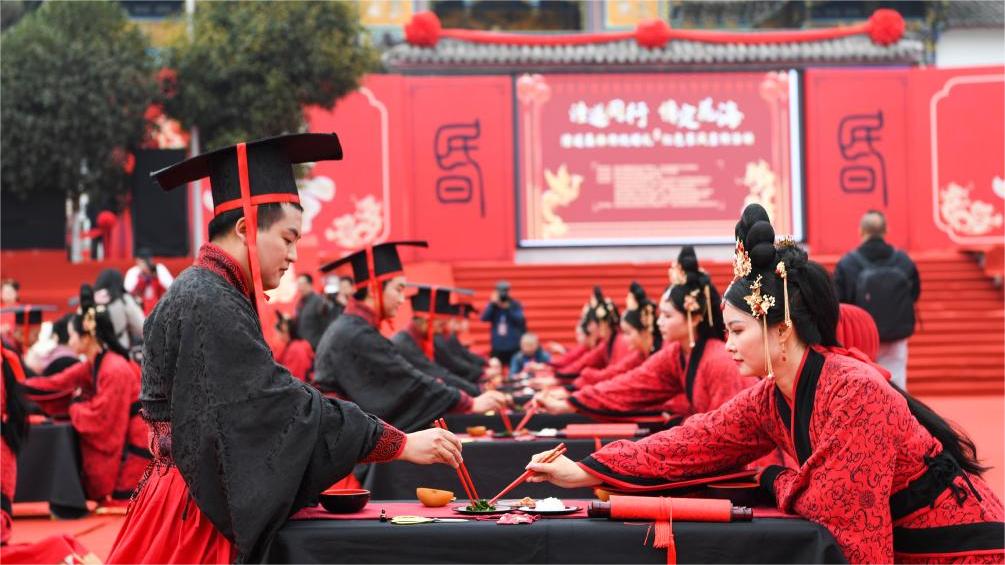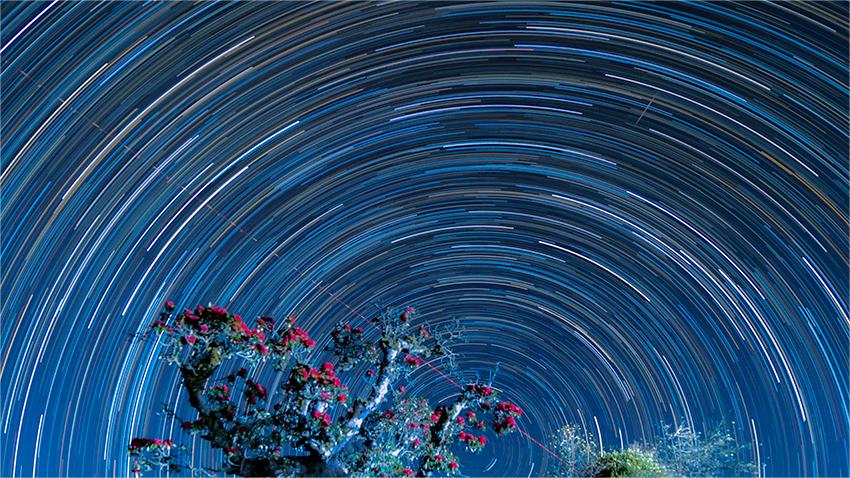Scientists aim to unravel human brain mysteries via space station
BEIJING, March 12 (Xinhua) -- How does the space environment affect human brain function, and how does the brain adapt to it?
Chinese scientists hope to find clues to these questions using China's Tiangong space station, which is orbiting about 400 km above Earth.
As China's space station enters the application and development stage, one of the astronauts' main tasks is to carry out scientific experiments. Among them is the in-orbit electroencephalogram (EEG) test, which focuses on the human brain in space.
According to Wang Bo, a researcher from the China Astronaut Research and Training Center, an in-orbit EEG test platform has recently been established. As a safe, reliable, portable, and easy-to-use platform, it can be used to carry out all kinds of EEG research experiments.
"Starting from the Shenzhou-11 mission, we have started the first EEG experiment and verified the applicability of brain-computer interaction technology in orbit through brain-controlled robots," said Wang.
"We then carried out dozens of in-orbit EEG tests, built up a platform, developed several research paradigms, and realized some model tests," he added.
In collaboration with several batches of astronauts, researchers from the China Astronaut Research and Training Center have developed a series of standard procedures for EEG testing through ground screening and in-orbit validation.
According to Wang, there are three research objectives. "We hope to know what kind of effects the space environment has on the human brain, how the brain adapts to the environment in space and remodels its nerves, and finally, we want to develop or validate some brain enhancement techniques."
He added that, in the long run, the in-orbit EEG test could explore the mysteries of brain evolution in the universe and provide new ideas for the development of brain-like intelligence.
Some breakthroughs have already been made. For example, the research team has developed a brain load classification model of multiple dimensions that integrates physiological, performance, and behavioral data, improving the classification accuracy. The team has also made some achievements in modeling data on brain fatigue, brain load, and alertness.
In addition to academic research, EEG testing in a space station also supports astronauts' long-term stay in space, helping them maintain a good state of brain function and carry out their work efficiently.
Astronauts perform many complex and delicate operations in space, so it is important for the human brain to maintain a good state, Wang explained. "We expect to enhance this ability through brain stimulations and other technologies so as to maximize the role of human beings in space."
"At first, the astronauts are guided into a resting state, where we collect data of a relatively smooth period that serves as a baseline," said Cao Yong, a researcher from the China Astronaut Research and Training Center.
"Then, after the resting, the astronaut will carry out a series of operations, generating new response data. We will combine the EEG data to comprehensively determine the astronaut's brain load status," Cao added.
In order to find better ways to enhance the astronauts' brain function, the researchers have explored a great deal in the design of the experimental process, acquisition hardware, and analysis algorithms, Cao said.
Furthermore, brain-computer interaction is currently a hotspot on the frontier of science and technology. It is expected to play an important role in the space environment.
This technology is to transform human thinking into an operation instruction, which is very beneficial for multi-threaded operations and remote operations, Wang said.
It is expected to be applied in some complex extravehicular activities, as well as human-machine cooperations, to ultimately improve the overall efficiency, he added.
(Dong Zhixiu and Li Yilin also contributed to the story.)
Photos
Related Stories
Copyright © 2024 People's Daily Online. All Rights Reserved.









